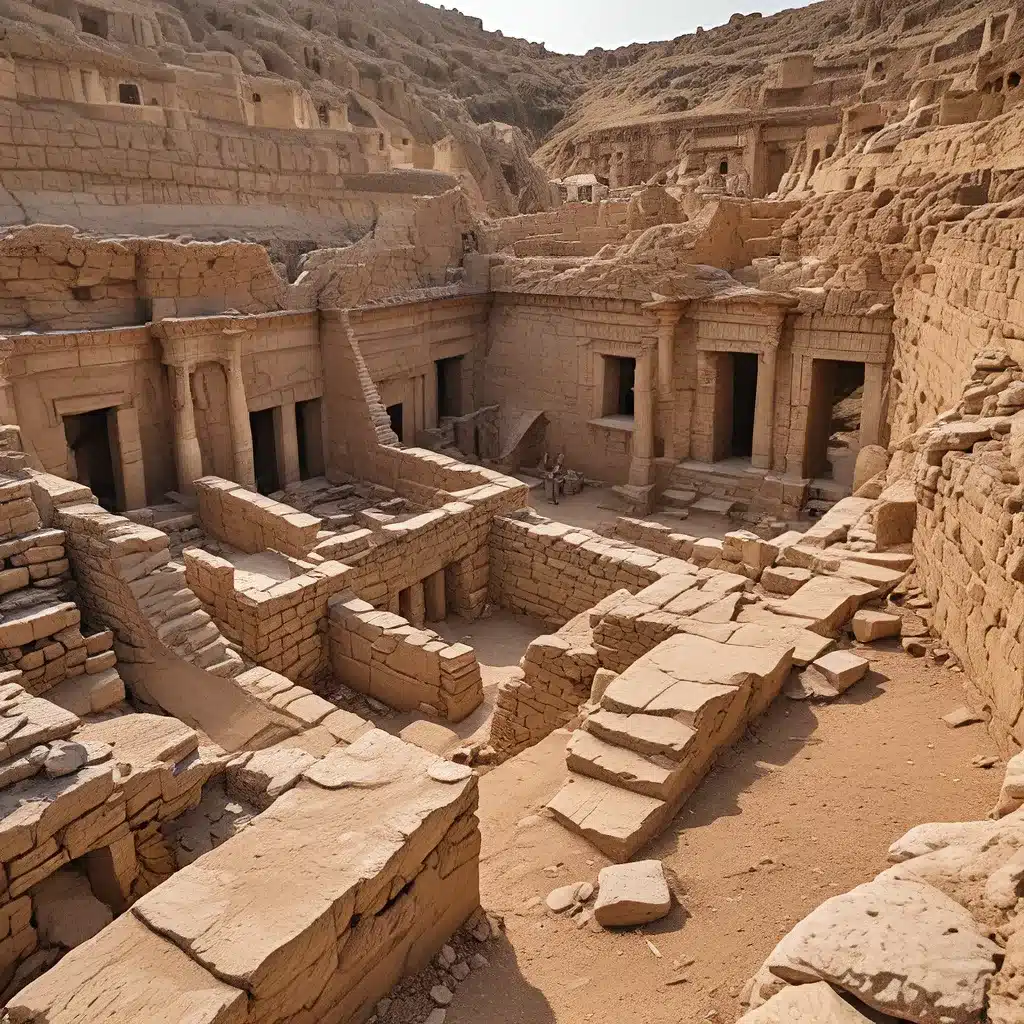
The world of ancient civilizations and long-lost cultures has captivated the human imagination for centuries. From the majestic pyramids of Egypt to the enigmatic statues of Easter Island, our collective fascination with the mysteries of the past continues to drive us forward in our pursuit of understanding. In this comprehensive article, we’ll delve into the realm of archaeological exploration, uncovering the remarkable discoveries that have reshaped our understanding of human history.
Unraveling the Secrets of Bygone Eras
The field of archaeology is a testament to human curiosity and the relentless drive to uncover the hidden narratives of our collective past. As passionate individuals seek to explore and research ancient cultures, artifacts, and sites, they embark on a journey of discovery that often leads them to the most remote and untouched corners of the world.
One such explorer, Josh Gates, has captivated audiences with his television series Expedition Unknown, where he delves into the mysteries of the past, seeking to unravel the secrets hidden within ancient ruins and long-forgotten civilizations. While his approach may not always align with the traditional methods of professional archaeologists, Gates’ enthusiasm and ability to bring these stories to life have struck a chord with the public, sparking a renewed interest in the field of archaeology.
The Age of Discovery, a pivotal period in human history, saw the emergence of intrepid explorers who ventured into the unknown, driven by a thirst for knowledge and the desire to expand the boundaries of the known world. The European discovery of the Americas in 1492, spearheaded by the Italian explorer Christopher Columbus, marked a momentous shift in global awareness, as the continents of the Western Hemisphere were brought to the attention of the world.
Uncovering the Secrets of the Past
The pursuit of ancient knowledge is not limited to the exploits of modern-day adventurers. Throughout history, countless individuals have dedicated their lives to the study of the past, using a range of archaeological methods and techniques to shed light on the mysteries of bygone eras.
One of the most significant advancements in the field of archaeology has been the development of radiocarbon dating, a scientific method that allows researchers to determine the age of organic materials with a high degree of accuracy. This technique has been instrumental in establishing the chronology of various archaeological sites, providing a more precise understanding of when civilizations thrived and cultures flourished.
Another crucial tool in the archaeologist’s arsenal is satellite imagery, which has revolutionized the way we approach the exploration of ancient sites. By analyzing high-resolution satellite data, researchers can now identify previously undiscovered structures, hidden settlements, and even entire lost cities, expanding our knowledge of the past in ways that were once unimaginable.
Exploring the Mysteries of Ancient Civilizations
As archaeologists delve deeper into the layers of history, they continue to uncover remarkable insights into the lives and practices of our ancestors. From the enigmatic Nazca Lines of Peru to the towering statues of Easter Island, each new discovery offers a tantalizing glimpse into the rich tapestry of human civilization.
One of the most captivating ancient cultures is the Mayans, a Mesoamerican civilization renowned for their advanced astronomical knowledge, intricate writing system, and sophisticated architectural achievements. The recent deciphering of Mayan hieroglyphics has shed new light on their political structures, religious beliefs, and the complex interplay between various Mayan city-states.
Similarly, the Indus Valley Civilization, one of the earliest urban cultures in the world, has long captivated the imaginations of scholars and the public alike. The discovery of meticulously planned cities, advanced sanitation systems, and a sophisticated system of trade and commerce has challenged our understanding of the development of ancient civilizations.
Emerging Theories and Controversies
As new archaeological discoveries continue to reshape our understanding of the past, they have also given rise to a range of theories and controversies that challenge the established narratives of history.
One such theory is the Out-of-Africa hypothesis, which proposes that modern humans originated in Africa and subsequently spread to other parts of the world. This theory, supported by a wealth of genetic and archaeological evidence, has challenged the long-held belief that human evolution occurred in a more dispersed manner.
Another area of ongoing debate is the peopling of the Americas. While it is widely accepted that the first inhabitants of the Americas crossed the Bering Strait from Asia during the last Ice Age, the exact timing and the routes they took remain a subject of active research and discussion.
As we continue to explore the vast and untapped troves of ancient knowledge, it is important to remain open-minded and critical, embracing new discoveries and theories while also maintaining a healthy skepticism towards claims that lack robust scientific evidence.
Conclusion: Embracing the Mysteries of the Past
The field of archaeology is a testament to the human spirit of exploration and the innate desire to understand our collective past. Through the tireless efforts of researchers, adventurers, and dedicated scholars, we continue to unravel the secrets of bygone eras, shedding light on the rich tapestry of human civilization.
As we explore the unknown and venture into the mysteries of antiquity, we are not only expanding our knowledge but also cultivating a deeper appreciation for the resilience and ingenuity of our ancestors. The Lost Kingdoms blog invites you to join us on this captivating journey, where the boundaries of the known world are constantly being pushed, and the echoes of the past resonate with a newfound clarity.


